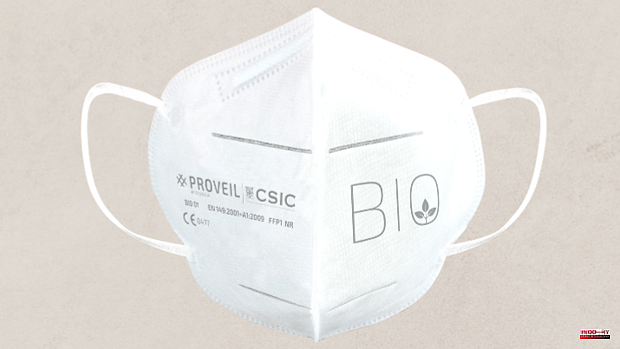The manufacturer Proveil has obtained the FFP1 certification for its Proveil BIO mask, which has an aerosol filtration capacity of 97% and disintegrates in twenty-two days, as reported by the Valencian company specializing in the development and manufacture of nanofiber filters.
This mask, which has a completely biobased body that does not come from fossil sources, has been developed together with a team of researchers from the CSIC led by José Mª Lagarón, a specialist in filtration materials and masks, and has obtained the FFP1 certification from of the notified body EUROFINS Textile Testing Spain.
It has a filtration capacity against aerosols greater than 97%, and its biocompostability makes it the "safer and more respectful for the environment" option and also "it can be the perfect solution for this summer, thanks to its high breathability and capacity of filtration”, according to the same sources.
In addition, being environmentally friendly, this mask has also undergone numerous tests carried out by the Valencia Biomechanics Institute (IBV) to verify that it "dissipates heat, humidity and CO2 better than those made with traditional filters made of polypropylene, highly polluting for the environment». In fact, it should be deposited in the organic waste containers.
In this sense, the researcher José Mª Lagarón has highlighted that when choosing a mask "we must look at the degree of protection it offers us, but also that it is light, allows us to breathe well and is comfortable" to "avoid constantly touching it, lowering it to leave the nose out or, directly, not using it».
In addition, Lagarón continues, to avoid plastic contamination of single-use items such as masks, which are also new sources of microplastics when they are fractionated, he has highlighted that the organic recycling capacity of the BIO mask they have developed allows the return of carbon to the soil to regenerate biomass, and "thus prevents it from contaminating floating in the ocean or in our natural spaces, or in the atmosphere causing the greenhouse effect".












